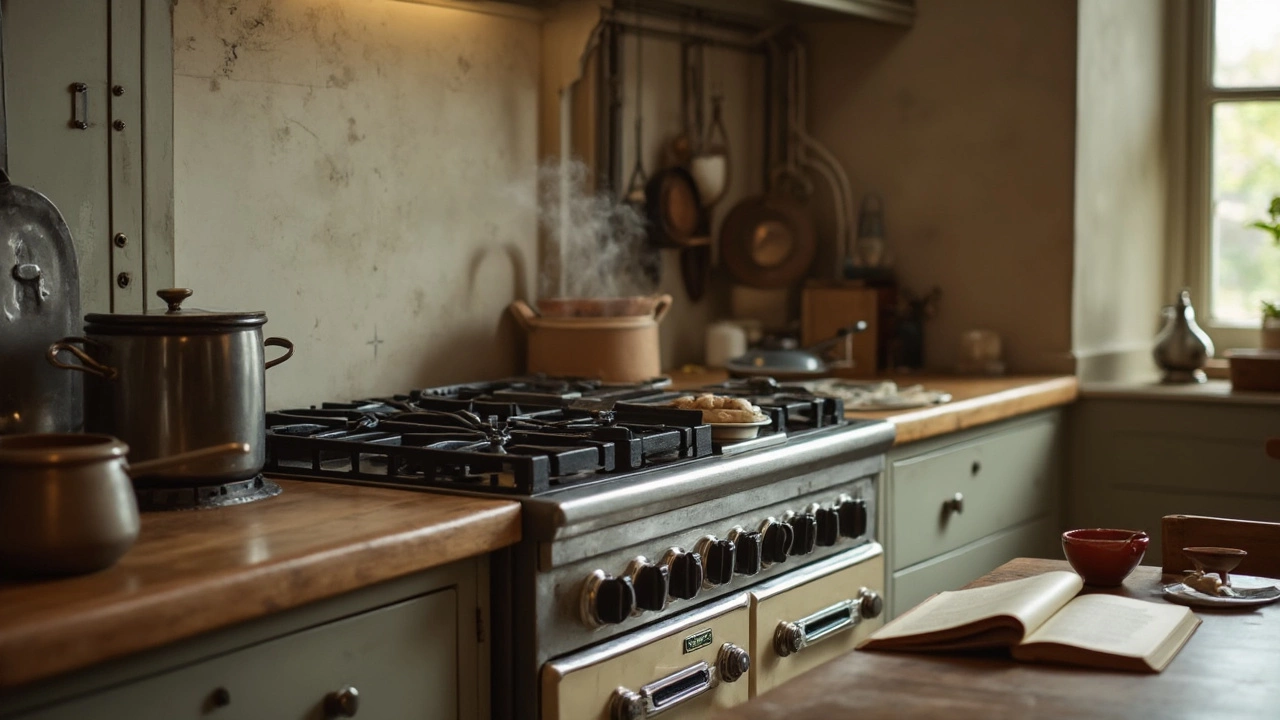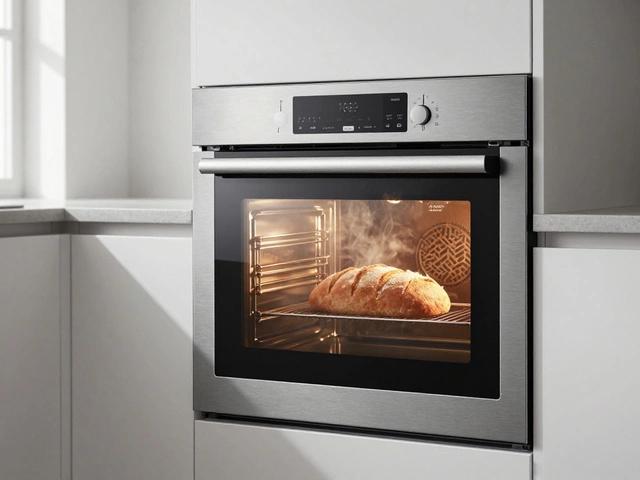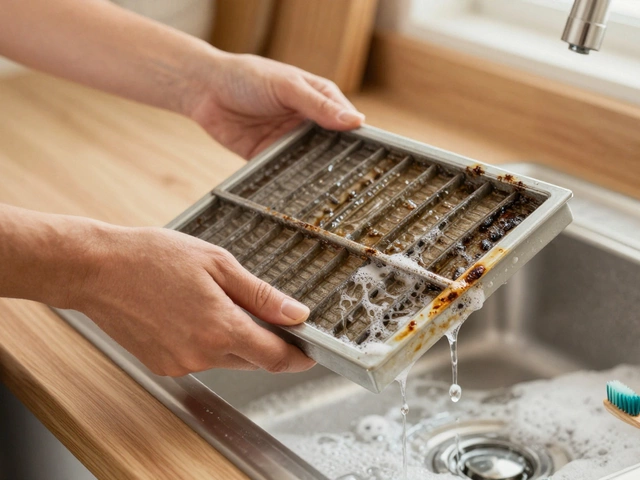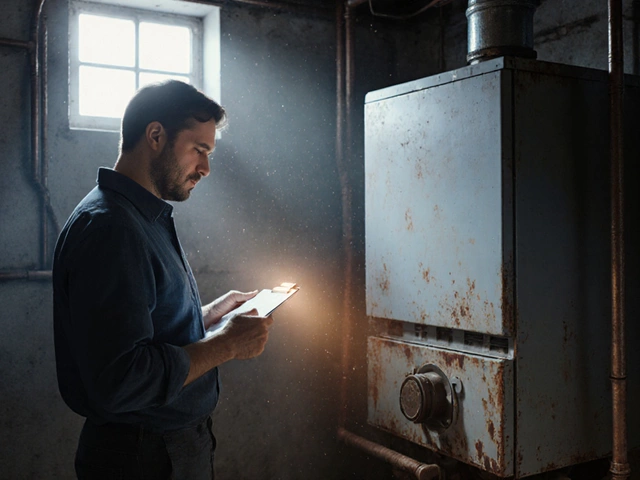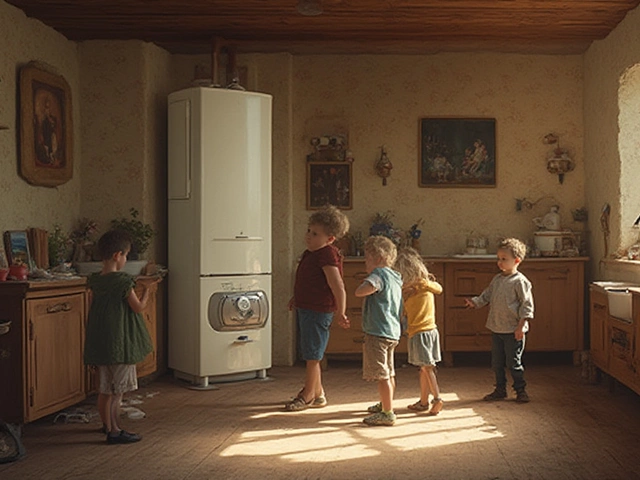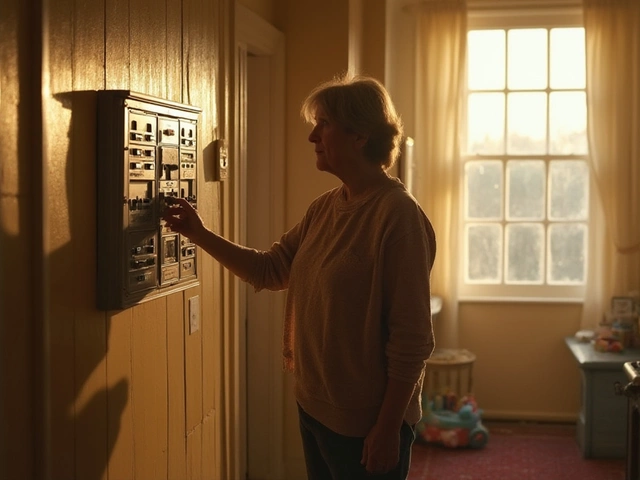So, you're wondering how long your trusty gas hob should stick around, huh? It's a common question, especially if you've been whipping up meals on the same burners for years. Here's the scoop: on average, a gas hob can last anywhere between 10 to 15 years. But, it seriously depends on how you use it and care for it.
Think of your gas hob like your car. Regular check-ups and a bit of TLC can really prolong its life. Skipping the maintenance? Well, that's like skipping oil changes and tire rotations. Not a great idea.
A lot of people overlook the simple stuff, like cleaning. Gunk buildup isn't just gross; it can actually mess with your hob's performance. And let's be real, no one wants to cook on a greasy, slow-heating mess.
So, keep reading to find out how to make sure your gas hob cooks like a champ for as long as possible. From spotting early signs of wear and tear to knowing when it's time to say goodbye, we've got you covered.
- Understanding Gas Hob Lifespan
- Signs Your Gas Hob Needs Repair
- Tips to Extend Your Gas Hob's Life
- When to Replace Your Gas Hob
- Getting Professional Help
Understanding Gas Hob Lifespan
Let's talk about what really affects the lifespan of your gas hob. Some folks think it's all about luck, but nope, it's actually a combo of usage, maintenance, and quality. First up, if you're firing up that hob every day, you might see it start to wear out sooner than if you used it less frequently. It's all about wear and tear, like anything else.
Then there's maintenance, the biggie. Ever heard 'treat it right, it'll last longer'? Applies here too. Simple things make a difference, like cleaning the burners regularly. Ignoring the grime? That can block the flame outlets and seriously hurt performance.
Quality Matters
Now, not all gas hobs are created equal. Think about the brand and model you have. High-end models usually last longer because they're built with better materials. But they're also pricier. It's a trade-off between upfront cost and long-term durability.
Environmental Factors
Also, consider your kitchen environment. Steamy kitchens with poor ventilation can affect the lifespan of appliances. That's because moisture can lead to rust and corrosion over time. Not great for metal parts.
Reliability by the Numbers
Here’s a quick breakdown:
| Brand | Average Lifespan (Years) |
|---|---|
| Brand A | 8-10 |
| Brand B | 12-15 |
| Brand C | 10-12 |
This is just a rough guide—your mileage may vary based on all those factors above.
So, if your hob is getting up there in age, maybe take a moment to think about how it's been treated. Maybe it's time for some TLC or even considering a future replacement. Stay ahead, and you won't get caught off guard when you suddenly face an out-of-service hob.
Signs Your Gas Hob Needs Repair
Your gas hob is one of those kitchen workhorses that often gets overlooked until something goes wrong. But being proactive can save you a headache later. So, what should you look out for?
1. Burner Issues
First off, if the burners aren't igniting properly or the flame is uneven, that's a red flag. Sometimes it's just a simple cleaning issue, but it could also mean the igniter or burner itself needs fixing.
2. Strange Smells
Notice a weird smell or even gas when the hob isn’t on? That might signal a gas leak, and it's more than just a repair need—it's a safety hazard. In such cases, call a professional right away. Gas hob repair isn't something to mess around with if gas leaks are involved.
3. Unusual Noises
Bubbling or whistling sounds while the hob is running can indicate a problem. These noises often mean there's an issue with the gas flow or a blockage.
4. Off Colors
A steady blue flame is what you want. If you're seeing orange or yellow flickers, that's a sign something's off. It usually means incomplete combustion, which isn't efficient and can be unsafe.
5. Difficulty Adjusting Flame
If twisting the knob doesn't change the flame size as it should, there might be a problem with the valve. This can be tricky because it affects how well you can cook!
Keeping an eye on these symptoms can help keep your gas hob in tip-top shape and might save you from unexpected breakdowns or costlier repairs down the line.
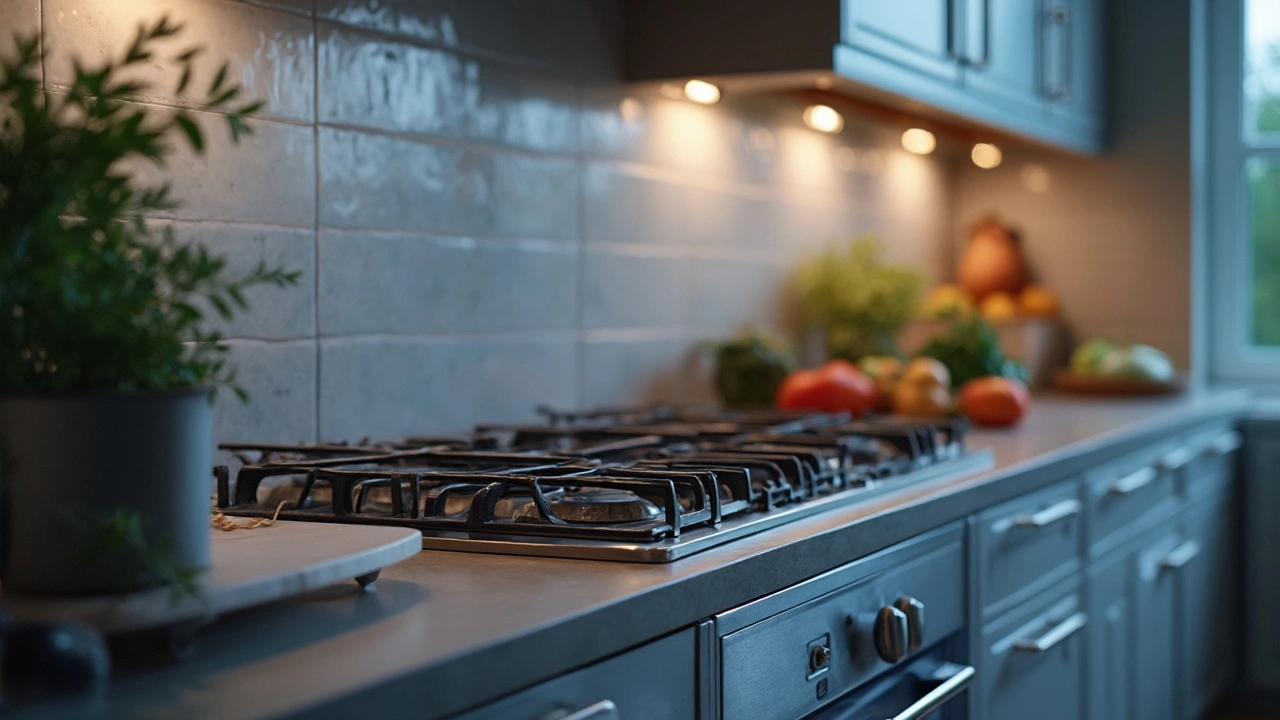
Tips to Extend Your Gas Hob's Life
Wanna make your gas hob last as long as possible? It's easier than you might think. A few regular habits can go a long way in keeping it humming beautifully in your kitchen.
Regular Cleaning
Let's not beat around the bush: Clean your gas hob after every use. Turn it off and let it cool down before wiping away spills. Use a mild detergent and a soft cloth. Avoid harsh chemicals that might damage the surface.
Check the Burners
Once in a while, remove the burners and clean the small holes with a brush. Clogged burners can lead to uneven flames and might stress your hob over time. Doing this little check-up can save you both time and money down the line.
Inspect for Leaks
Smell gas when the hob is off? Not good. You can check for small leaks by mixing some soap with water and applying it to the connection points. Bubbles mean you need to tighten things up or call in a pro.
Ventilation is Key
Gas hobs need proper ventilation. Make sure your extractor fan is working well to eliminate excess moisture and fumes. This isn’t just about extending the hob's life—it’s better for your health too.
Avoid Heavy Pots
Using super heavy pots can harm your hob’s surface and mess with the balance of the burners. Try sticking with medium-weight cookware. It'll extend the hob's life and make cooking more manageable.
Professional Maintenance
Finally, it doesn’t hurt to have a professional check your gas hob annually. They'll spot issues you might miss and help keep everything in good working order. Kind of like taking your car in for a tune-up.
Need a quick glance at how long appliances typically last? Check out this handy guide:
| Appliance | Life Expectancy (Years) |
|---|---|
| Gas Hob | 10-15 |
| Microwave | 9-10 |
| Fridge | 12-14 |
So, give these tips a go. A little effort now can keep your kitchen running smoothly for years to come.
When to Replace Your Gas Hob
Alright, knowing when to replace a gas hob is crucial for keeping your kitchen safe and functional. If you're constantly calling for hob repair, it might be time to consider a new one. Older models tend to need more frequent fixes, costing more in the long run than a replacement.
Key Signs It's Time for a New Gas Hob
- Uneven Burners: One of the first signs is when your burners don't heat evenly. A simple repair might do the trick at first, but if the problem keeps coming back, it might be time for a change.
- Discoloration: If you notice discoloration or rust on your burners or the surface, that can be a sign of deterioration. It's not just about looks—this could affect performance and safety.
- Noisy Burners: Hissing or popping sounds aren't normal. If they're happening more often, it's a sign your appliance is aging or damaged.
- Gas Smell: The most obvious—and dangerous—sign is if you smell gas when the hob is off. This could indicate a leak, and it's crucial to address it immediately.
When Repairs Aren't Enough
So, a couple of hiccups here and there might just need a quick fix, but if you're ticking off a few of those problems above, it's better to look into replacement options. Think of the new features you could get, like more precise heat control and energy efficiency! Plus, newer models are much more eco-friendly.
Budgeting for a New Gas Hob
Price is always a factor. Remember to consider not only the cost of the gas hob itself but also the installation if you're not doing it yourself. It's an investment, for sure, but one that can lead to a safer and more enjoyable cooking experience. Plan ahead by looking at available models and what fits your needs best.
So, there you have it—the low down on knowing when to say goodbye to your old gas hob and hello to something fresh and efficient. Your kitchen deserves it!
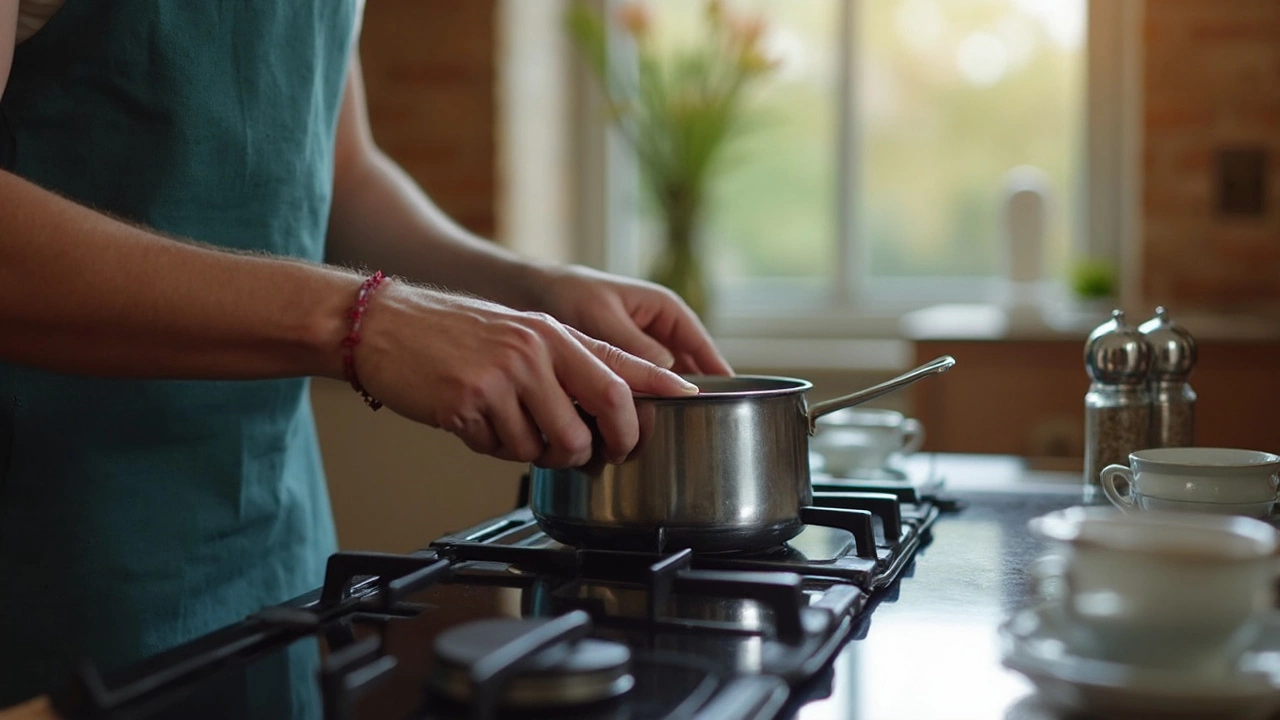
Getting Professional Help
Sometimes, fixing or maintaining your gas hob isn't a DIY job. That's when having a professional technician in your contacts comes in handy. Attempting repairs without the right skills or tools can cause more harm than good. You might even void the warranty if you tamper with the appliance. So, when should you call in the pros? Here's what you need to know.
Signs You Need a Technician
If you're noticing persistent issues like uneven heating, funny smells of gas, or the burners just won't ignite, it's time to contact an expert. Also, if you spot any physical damage like cracks or breaks, don’t delay the repair. A professional can assess whether it's worth fixing or if it's time for a replacement.
Finding the Right Technician
When hiring a technician, ensure they are certified and have experience with your specific brand. You can start by checking reviews online or asking for recommendations from friends or family. A good technician will also provide a clear estimate and explain what needs to be done in layman's terms.
Cost of Repair vs. Replacement
Now, let's talk money. Repair costs vary depending on the issue. Minor fixes might cost around $100 to $200, whereas more significant issues could climb to $400 or more. If repairs seem too steep or if your hob is nearing the end of its lifespan, it might be wiser to invest in a new one.
| Service | Estimated Cost |
|---|---|
| Minor Repairs | $100 - $200 |
| Major Repairs | $300 - $500 |
| Replacement | $300 - $1,200 |
Just remember, keeping your gas hob in peak condition doesn't always mean waiting for something to break. Regularly scheduled service can help catch issues before they turn into expensive headaches. Trust me, a little maintenance goes a long way.
